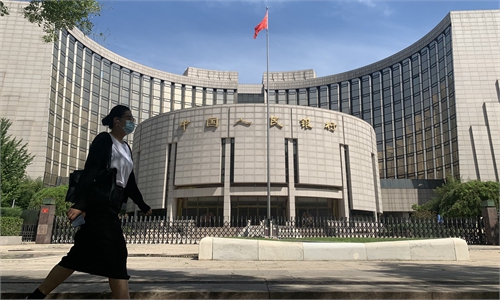Oversubscription of $2 billion bonds in Saudi Arabia reflects appeal of Chinese economy

Illustration: Tang Tengfei/GT
Chinese banks including the Agricultural Bank of China, Bank of China, the Industrial and Commercial Bank of China recently announced that they assisted the Ministry of Finance of China in the issuance of $2 billion in sovereign bonds in Riyadh, Saudi Arabia.This is the first Chinese sovereign bond issued and traded in the Middle East.
The bonds received an enthusiastic market response, with international investors actively subscribing the assets. The total subscription amount reached $39.73 billion, which is 19.9 times the issuance amount, according to an announcement seen on the Ministry of Finance's website.
The successful issuance and oversubscription of the bonds not only demonstrate the openness and vitality of China's financial sector but also reflect the strong appeal of the Chinese economy and the international investors' positive outlook on China.
The strong demand for the bonds highlights international confidence in China's economic resilience and its significant role in the global economy, even amid rising global economic uncertainties. This confidence is driven by the steady recovery momentum of the Chinese economy, a stable policy environment, and the country's substantial market potential.
The issuance of this sovereign bond marks a milestone in enhancing international financial cooperation. It diversifies China's financing channels and optimizes its debt structure. Additionally, it enables China to share the benefits of its economic development with investors in the international capital market, fostering mutual benefit and win-win outcomes for all parties involved.
This issuance also highlights China's financial market's growing internationalization and its global influence. By issuing dollar-denominated bonds in the international market again, China has not only strengthened its position in the global financial system but also has contributed to global economic development.
Moreover, the issuance of the bonds will strengthen economic cooperation between China and Saudi Arabia, promote the implementation of the Belt and Road Initiative, and foster infrastructure and energy cooperation.
In recent years, China has made significant strides in high-standard opening-up and expanding financial cooperation with a growing number of countries, allowing foreign institutions in China to engage more deeply in China's financial market.
Foreign financial institutions are actively investing in the Chinese bond market mainly because they are optimistic about the prospects of China's economic growth. In the context of global economic uncertainty, the investment value and safe-haven attributes of Chinese bonds have become more prominent, making the Chinese bond market more accessible for worldwide investors.
By the end of 2023, China's bond market had become the world's second-largest, with the accumulated value exceeding 158 trillion yuan ($22 trillion), according to data from the People's Bank of China.
Currently, overseas investors hold more than 4 trillion yuan in Chinese bonds, a nearly tenfold growth since the Bond Connect system commenced trading in July 2017, according to the Xinhua News Agency.
Given improvements in China's economic fundamentals and structural upgrades, the nation is well-positioned for steady growth despite external pressures. There remains substantial room for policy adjustments, which positions China to bolster and maintain the confidence of international investors.
In an ever-evolving global trade and economic landscape, Chinese market's appeal continues to attract foreign investors. Investment institutions have shown strong confidence in the long-term growth potential of China.
The strong resilience of China's economy underscores a commitment to fostering a robust economic environment capable of thriving amid global uncertainties. Despite challenges in its transformation phase, China consistently presents significant long-term opportunities for global investors.
The author is a reporter with the Global Times. bizopinion@globaltimes.com.cn



